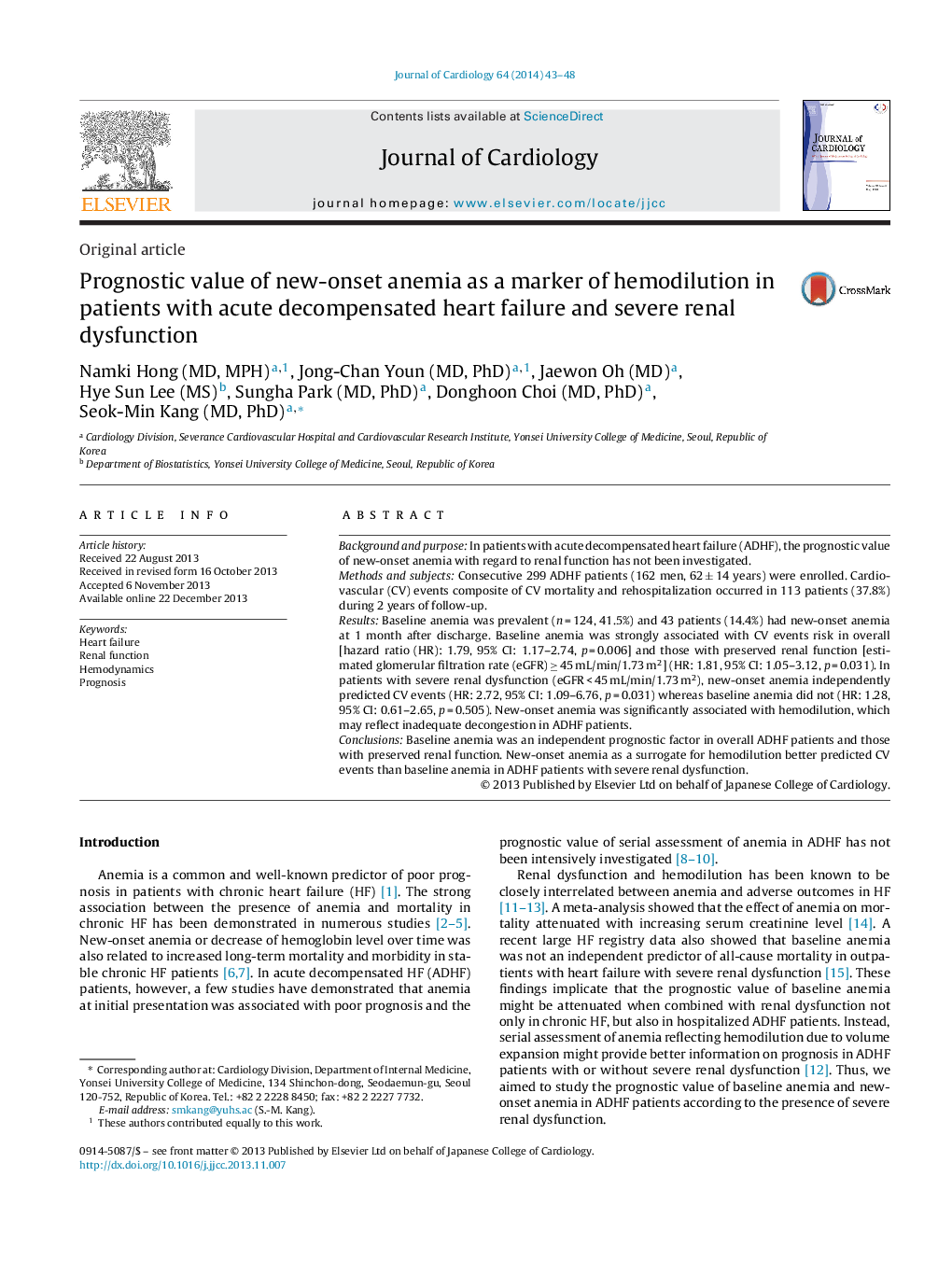| Article ID | Journal | Published Year | Pages | File Type |
|---|---|---|---|---|
| 2963204 | Journal of Cardiology | 2014 | 6 Pages |
Background and purposeIn patients with acute decompensated heart failure (ADHF), the prognostic value of new-onset anemia with regard to renal function has not been investigated.Methods and subjectsConsecutive 299 ADHF patients (162 men, 62 ± 14 years) were enrolled. Cardiovascular (CV) events composite of CV mortality and rehospitalization occurred in 113 patients (37.8%) during 2 years of follow-up.ResultsBaseline anemia was prevalent (n = 124, 41.5%) and 43 patients (14.4%) had new-onset anemia at 1 month after discharge. Baseline anemia was strongly associated with CV events risk in overall [hazard ratio (HR): 1.79, 95% CI: 1.17–2.74, p = 0.006] and those with preserved renal function [estimated glomerular filtration rate (eGFR) ≥ 45 mL/min/1.73 m2] (HR: 1.81, 95% CI: 1.05–3.12, p = 0.031). In patients with severe renal dysfunction (eGFR < 45 mL/min/1.73 m2), new-onset anemia independently predicted CV events (HR: 2.72, 95% CI: 1.09–6.76, p = 0.031) whereas baseline anemia did not (HR: 1.28, 95% CI: 0.61–2.65, p = 0.505). New-onset anemia was significantly associated with hemodilution, which may reflect inadequate decongestion in ADHF patients.ConclusionsBaseline anemia was an independent prognostic factor in overall ADHF patients and those with preserved renal function. New-onset anemia as a surrogate for hemodilution better predicted CV events than baseline anemia in ADHF patients with severe renal dysfunction.
